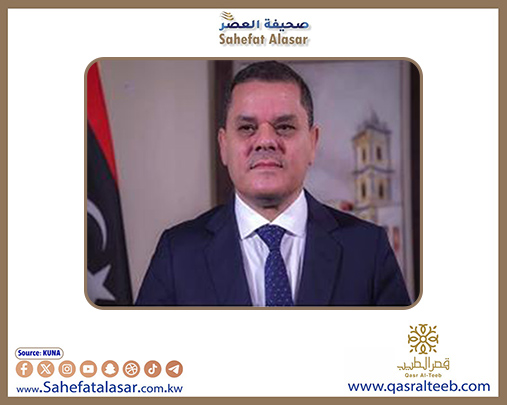


Abdul Hamid Al-Dbeibah, Prime Minister of Libya's Government of National Unity (GNU), called on Sunday for "ending transitional phases and moving directly to comprehensive elections" as the optimal path to renew legitimacy and stabilize the country.
Meeting with UN Delegation
Al-Dbeibah made the remarks during talks with a UN Office of Internal Oversight Services delegation evaluating the UN Support Mission in Libya (UNSMIL).
Emphasized that elections enjoy "broad popular support and urgent national aspirations to break the political deadlock."
Roadmap Proposal
Transition Termination: Stressed the need to replace interim governance with elected institutions.
UN Role: Praised UNSMIL's work but cautioned it must:
Maintain professional neutrality
Respect Libya's political pluralism
Prioritize national sovereignty
Operational Challenges
Urged UN initiatives to account for Libya's complex local context.
Reaffirmed GNU's commitment to cooperate with UNSMIL and international partners to:
Strengthen stability
Pave way for credible elections reflecting popular will
13+ Years of Crisis: Libya remains split between:
Tripoli-based GNU (controlling west)
Benghazi-based administration (ruling east/south)
Failed Elections: December 2021 vote collapsed over:
Candidate disputes (including Khalifa Haftar's eligibility)
Contested electoral laws
UNSMIL's Mandate: Currently led by Abdoulaye Bathily, focused on:
Constitutional basis for elections
Security sector reunification
Oil Production Impacts: Political divisions have kept output fluctuating between 1.1-1.3 million bpd (vs 1.6 million pre-2011).